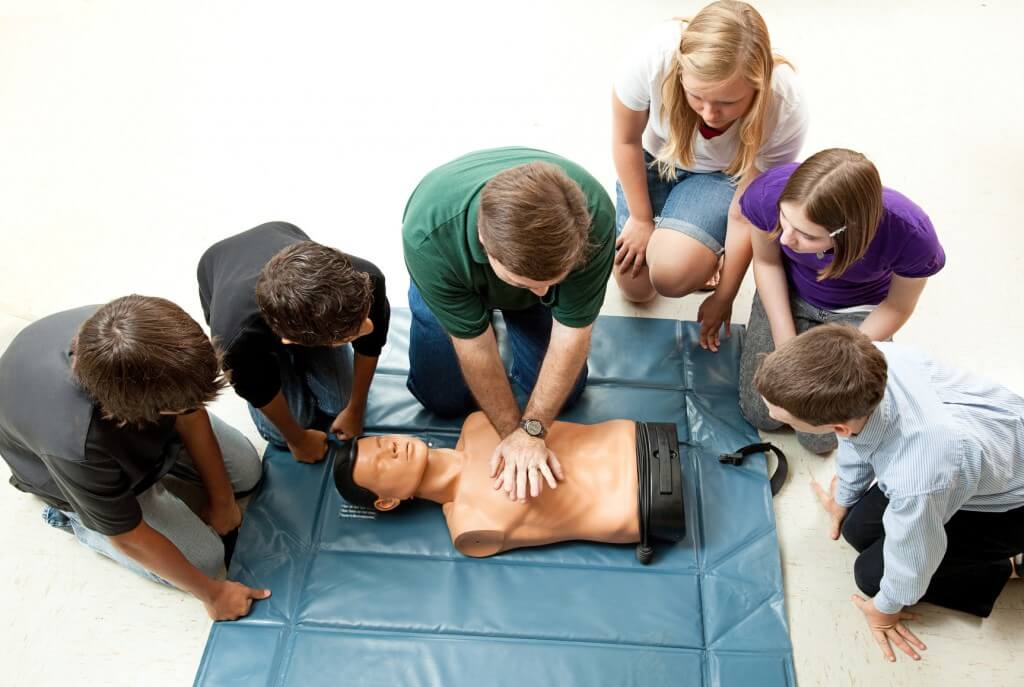Introduction
In today's fast-paced world, the capability to respond effectively in an emergency situation can make all the distinction between life and death. One crucial ability that everybody should have is Cardiopulmonary Resuscitation (MOUTH-TO-MOUTH RESUSCITATION). This short article dives deep into The Significance of CPR Accreditation: What You Required to Know, highlighting why getting a CPR qualification is not simply helpful but vital for anyone seeking to guarantee safety in their community.
The Relevance of mouth-to-mouth resuscitation Qualification: What You Required to Know
When it pertains to conserving lives, knowledge is power. CPR is a crucial ability that can be found out through various first aid courses With heart attack being one of the leading causes of fatality internationally, having CPR knowledge can substantially raise survival rates. According to the American Heart Organization, immediate CPR can increase and even triple a target's possibility of survival.
But what exactly does mouth-to-mouth resuscitation involve? It's a mix of breast compressions and rescue breaths developed to keep blood circulation and oxygenation throughout heart emergencies. While many people believe CPR is just necessary for healthcare specialists, the fact is that anyone can take advantage of discovering this potentially life-saving skill.
What Does CPR Certifcation Entail?
CPR qualification commonly includes finishing a training program that covers different skills, consisting of:
- Recognizing heart attack symptoms Performing high-grade upper body compressions Administering rescue breaths Using an Automated External Defibrillator (AED)
These abilities are commonly instructed in conjunction with first aid courses, providing an extensive understanding of exactly how to react in emergencies.
Why You Ought to Obtain Certified
Life-Saving Skills: One of the most compelling reason for getting your mouth-to-mouth resuscitation certification is the capability to save lives. Having these skills prepares you for emergencies at home, at the office, or in public spaces.
Confidence Boost: Knowing just how to do mouth-to-mouth resuscitation can enhance your self-confidence when faced with an emergency scenario. This assurance allows you to act emphatically as opposed to freeze under pressure.
Career Opportunities: Several employers look positively upon candidates with accreditations in emergency treatment and mouth-to-mouth resuscitation. Fields such as health care, education and learning, and sports training typically require these credentials.
Community Influence: When extra individuals are trained in CPR, communities become more secure areas. Picture going to a public event where various people understand exactly how to perform CPR; the possibility of reliable treatment enhances exponentially.

Renewal and Continual Learning: Many qualifications require revival every two years or two, ensuring that individuals remain updated on finest techniques and any type of changes in guidelines.
What Are Your Choices for Training?
There are many methods offered for obtaining your CPR certification:
Online Courses
Online programs have actually gained appeal due to their ease. You can find out at your very own speed without geographical constraints.
In-Person Classes
In-person classes supply hands-on experience under expert guidance, which can be very useful when it comes time to use your abilities in real-life situations.
Combination Programs
Some companies use hybrid programs that combine online theory with hands-on practice sessions.
Finding the Right First Aid Course
When picking a training program, consider factors like area, expense, duration, and credibility of the organization providing the course. Try to find recognized organizations identified by authorities like the American Heart Association or Red Cross.
How Frequently Ought to You Refresh Your Certification?
Most certifications suggest restoring every 2 years. Continual practice ensures skills stay sharp and updated with current guidelines.

Frequently Asked Concerns (Frequently asked questions)
1. What Is Consisted of in an Emergency Treatment Course?
A common first aid course covers skills such as injury care, choking alleviation techniques, basic life support (BLS), and how to utilize an AED together with CPR training.
2. How Long Does It Take To Obtain Certified?
Most First Aid Course Canberra training courses last between 4-8 hours for preliminary qualification and might take much less time for renewal training courses as a result of prior knowledge.
3. Is Online Accreditation Valid?
Yes! As long as the training course is certified by identified bodies like AHA or Red Cross.
4. Can I Use My First Aid Certification Internationally?
It depends on the nation's regulations; however, lots of places identify accreditations from reputable companies worldwide.

5. Are There Age Limitations for Taking a Course?
Generally no; people as young as 12 can take most first aid training courses with adult consent.
6. Do Firms Deal Group Discounts for Training?
Many organizations do offer discounts for team reservations that makes it easier for services wanting to train multiple staff members simultaneously.
Conclusion
Learning CPR is not merely an option; it's a responsibility we owe ourselves and our neighborhoods. The significance of being prepared can not be overstated-- having your accreditation equips you with life-saving skills that can make all the distinction throughout emergencies. By enlisting in a respectable emergency treatment course that includes extensive training on both emergency treatment techniques and mouth-to-mouth resuscitation treatments, you're taking positive actions towards ending up being a useful property in situation situations.
As we've checked out throughout this article entitled "The Significance of CPR Accreditation: What You Need to Know," it's clear that possessing these abilities enhances not only individual self-confidence but additionally community security on the whole-- producing a ripple effect where preparedness becomes second nature amongst us all! So why wait? Register today!